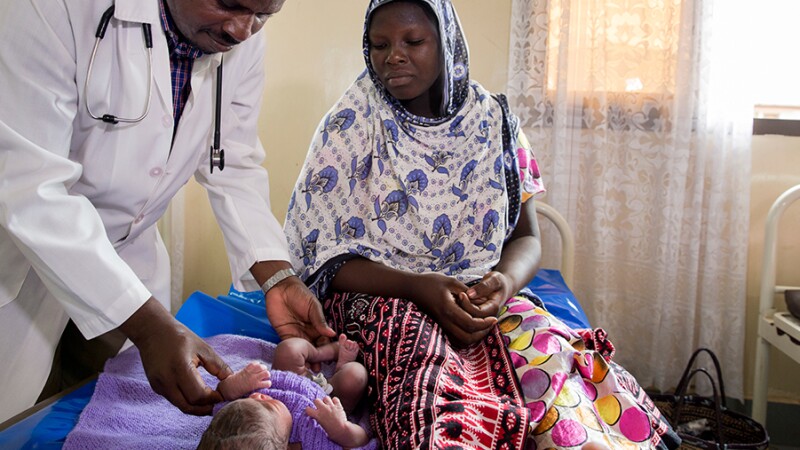At Johnson & Johnson, some things never change; other things change constantly.
In the never-change category: Johnson & Johnson is and always has been committed to improving health for everyone, including the most vulnerable people in the world. We have long-standing investments in global public health partnerships, in research and development and delivery to help decrease maternal and child mortality and fight against multi-drug resistant tuberculosis, HIV, and, more recently, Ebola.
In the change-constantly category: We are always looking to advance cutting-edge strategies and technologies and find breakthrough innovations to maximize our impact. That’s why we say that our goal is to continuously work to be the most innovative healthcare company in the world—and to find new solutions for patients and consumers, no matter where they live.
The recent launch of a new global public health strategy will help us build on our legacy by designing and delivering innovative, integrated solutions thatdemonstrate measurable long-term health outcomes in whole communities; mobilizing coalitions of global and local partners; and, executing with the breadth and scale of our cross-sector business capabilities to deliver solutions with speed and agility.
Our joint focus on global health and innovation—on what doesn’t change and what does— is what helps us continue to address some of the most urgent priorities in places with the fewest resources.
For example, earlier this month we announced new collaborations that could improve HIV outcomes and make a real difference in parts of the world still ravaged by the disease.
- We formed a partnership to bring an affordable, easy–to-use diagnostic test that reveals a patient’s viral load almost immediately, which would allow doctors to make smarter treatment decisions faster.
- We’re deepening our efforts to develop a combination regimen of two long-acting, injectable treatments that could potentially make it much easier for people living with HIV to manage their disease.
Our efforts extend to other diseases that disproportionately affect the most vulnerable. This includes a new research collaboration to identify new targets to treat Chagas disease, one of the leading causes of heart failure in Latin America that is curable if treatment is initiated soon after infection. We also entered into a multi-sector partnership to promote the discovery of new drugs for many diseases, including tuberculosis, using a new platform based on the breakthrough science of genetically encoded small molecules.
Two special features of these partnerships inspire me when I think about making a difference for the most vulnerable people around the world.
First, I believe they demonstrate the breadth and depth of the resources Johnson & Johnson is bringing to global public health in the developing world. In the case of the Chagas partnership, for example, we’re providing samples from our library of chemical compounds. With the injectable HIV treatment regimen, one of our main contributions is our long-acting technology platform, which could make possible the ability to limit injections to once every two months.
Second, these partnerships demonstrate the great opportunity in global public health, with a wide range of partners bringing unique expertise to the shared mission of serving the underserved with the best science available.
The combination of ideas and commitment represented by these new partnerships has the potential to make the next decade a watershed for the health of the world’s poor. We are proud to be a part of these partnerships, and we can’t wait to see how people’s lives change when the promise they hold is fulfilled.
Jaak Peeters is the head of Global Public Health at Johnson & Johnson.
